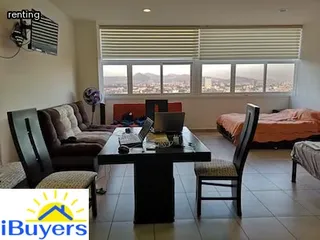It is important to understand the rights of a sitting tenant when selling a tenant-occupied property. As the owner of the property, you must ensure that you are aware of and respect all of the rights and obligations set out in the tenancy agreement between yourself and your tenant.
This includes understanding their right to privacy, their right to receive notice before entering the property, as well as any other requirements outlined in the tenancy agreement. Additionally, if there are any changes to ownership or management of the property during the term of their tenancy, tenants have a right to be informed about this.
Furthermore, it is important for sellers to be aware that tenants cannot be evicted from their home without following strict legal procedures and providing appropriate notice. Therefore, it is essential for owners to understand tenants’ rights before attempting to sell a tenant-occupied property.

When it comes to selling a tenant-occupied property, there are several options to consider. A real estate agent can provide expertise and assistance in the sale of the property, utilizing their knowledge of current market conditions and an understanding of local laws and regulations.
For those looking to take a more independent approach, they may choose to advertise and market the property themselves in an effort to attract potential buyers. The seller should also consider consulting with a lawyer or accountant to ensure they are aware of any tax implications that may arise from the sale.
Additionally, it is important for the seller to understand their rights as the landlord and be aware of any existing rental agreements that may need to be honored or terminated prior to selling the property. By exploring all available options, sellers can make informed decisions about how best to successfully sell their tenant-occupied property.
When selling a tenant-occupied property, the impact on its value can be significant. Depending on the tenant, the condition of the property, and other factors, it may be difficult to get top dollar from potential buyers.
The longer the tenant has been in place, their rental history and payment preferences need to be taken into account when considering their potential impact on the value of a property. Prospective buyers may also be deterred by certain rental agreements or obligations that they would need to take on were they to purchase the property.
Therefore, it is important for sellers to understand how selling with a tenant can affect the value of their property and explore ways to maximize its worth when marketing it for sale. Expert strategies such as researching current market conditions, assessing rental trends, understanding landlord-tenant laws and regulations, and effectively preparing and negotiating a sales agreement are invaluable tools that can help sellers successfully navigate this unique situation while ensuring they get maximum returns from their investments.

When selling a tenant-occupied property, it is important to use expert strategies to ensure the process goes as smoothly as possible. To start, landlords should consider consulting with a real estate professional or attorney for expert advice.
This will help ensure that all relevant laws and regulations are followed during the sale. Additionally, communication is key throughout the process and landlords should work closely with their tenants to keep them informed of any changes that could affect their living situation.
Landlords should also know the local tenant eviction laws which may vary depending on the state or municipality in which the property is located. When setting a price for the property, landlords should take into account any potential costs associated with repairs, renovations, or upgrades needed to make it more attractive to buyers.
Finally, landlords can look into marketing their properties through online resources such as social media platforms or listing websites in order to attract more potential buyers. By taking these steps and using these strategies, landlords can successfully sell their tenant-occupied properties quickly and efficiently.
When selling a tenant-occupied property, it is important to be prepared for the complexities that come with the sale. Before you start marketing your property, make sure your tenant is aware of the sale and that they are in agreement with any terms outlined in their lease.
Furthermore, it is essential to consider how long the tenant has been occupying the property, as well as any potential repairs, upgrades or maintenance that may need to be done before listing. Additionally, it is worth speaking with an attorney or real estate agent who can provide additional advice on how best to handle the sale while still maintaining a positive relationship with your tenant.
Understanding local rental laws and regulations can also help ensure you have the necessary paperwork and contracts ready for when potential buyers come to view the property. Being prepared from start to finish will help ensure a successful sale of a tenant-occupied property.

When selling a tenant-occupied property, it is important to manage problem tenants during the sale process. This can include everything from properly communicating with tenants about the sale to setting up rules and regulations for their behavior during showings.
To successfully sell a tenant-occupied property, it is essential to have an expert strategy in place. Start by having clear and open communication with the tenants regarding the sale of the property.
This can be done through letters or emails that outline expectations of behavior and timelines for showings. You should also set up rules for when showings occur, such as limiting them to certain days and times or requiring 24 hours advance notice before entering the property.
Furthermore, ensure that you are regularly inspecting the unit for any potential damage caused by the tenants. By taking these steps, you will be better equipped to manage problem tenants during the sale process and ultimately ensure a successful transaction for everyone involved.
When selling a tenant-occupied property, it is important to be aware of the existing fixed-term leases that come along with it. These leases can pose a challenge for sellers who are looking to quickly close on the sale of their property.
However, there are strategies that can be used to successfully navigate these fixed-term leases during the sale process. For example, one strategy is to offer incentives to tenants in exchange for an early termination of their lease agreement.
This could include offering cash payments or other forms of compensation in order to get tenants to move out before their lease expires. Another option is to work with buyers who are willing and able to honor existing tenant agreements.
This requires both parties involved in the sale (the seller and buyer) agreeing on a mutually beneficial arrangement that allows the tenant to stay while moving forward with the property sale. By understanding and utilizing different strategies when selling a tenant-occupied property, sellers can ensure that they successfully close on the sale without having any issues from existing fixed-term leases.

When selling a tenant-occupied property, it is important to consider the type of lease that is in place. Month-to-month leases can be more difficult to navigate than traditional long-term leases and require expert strategies for successful sales.
One key strategy is to provide notice to the tenant of the sale and then work with a real estate agent who is familiar with this type of situation. The agent can help ensure that all legal requirements are met when terminating the lease and that appropriate timelines are followed.
Additionally, it may be necessary to negotiate with tenants on an individual basis since they may have different rights under their agreement. Offering incentives such as rent abatement or payment for moving costs could be beneficial for both parties and help facilitate a smooth transition into new ownership.
Understanding these strategies and effectively communicating with tenants will help increase your chances of success when selling a tenant-occupied property with month-to-month leases in place.
When selling a property that is already occupied by tenants, there are both benefits and drawbacks to consider. On the plus side, you will not have to worry about finding new occupants for the property as this has already been taken care of.
This can save investors time and money in advertising costs. Additionally, having stable rental income from the tenant means investors can expect a steady return on their investment.
However, an investor must be aware of certain legal obligations when selling with sitting tenants. The landlord must provide written notice of the sale and may need permission from their tenants if they wish to show the property during viewings.
Furthermore, it is important to note that any changes or alterations made to the property should be discussed with the tenant prior to proceeding. The landlord must also be mindful of any applicable laws regarding tenant rights when working through a sale agreement.

When considering whether to sell a property with sitting tenants, it is important to assess your situation before making any decisions. You will want to consider the factors such as the length of the current tenant's lease, their rental history, and any other potential legal implications that may affect you as the landlord.
Additionally, you must be aware of your rights and responsibilities as a landlord in regards to this particular scenario. Knowing how much time and effort it will take to properly manage a tenant-occupied property should be taken into account when deciding if selling with sitting tenants is right for you.
It is also critical for landlords and sellers to become familiar with local laws and regulations that could impact their ability to successfully manage their tenant-occupancy situation. Furthermore, it is important to have an understanding of what strategies should be used when trying to sell a tenant-occupied property in order to maximize your return on investment while ensuring that both you and your tenant have a positive experience during the entire process.
When it comes to selling a tenant-occupied property, the benefits of incentives or compensation for the sitting tenant can be well worth the cost. Offering a cash bonus or reduced rent in exchange for cooperation can often lead to faster sales and smoother transactions.
Incentives such as free furniture, appliances, or repairs may also be effective bargaining tools to encourage tenants to agree to an early move-out date. If a tenant is willing to cooperate with showings and accept a shorter term lease, offering compensation is a great way to thank them for their effort and make sure they don't suffer any losses due to their flexible schedule.
Ultimately, when trying to successfully sell a tenant-occupied property, it's important to consider all options when negotiating with your sitting tenant, including offering incentives and compensation.

When selling a tenant-occupied property, one of the most important strategies is to properly evict any problematic renters prior to listing. This can be done by following best practices such as providing an ample notice period, adhering to local laws and regulations, and making sure to document every step of the process.
It is also important to treat all tenants fairly and equitably during this process in order to avoid potential legal liability. Having an experienced attorney or real estate agent on hand throughout the eviction can help ensure that all rules are followed.
Additionally, it may be beneficial to offer incentives for the tenant to leave voluntarily in order to reduce the amount of time and cost associated with an eviction. With these expert strategies, sellers will be able to successfully remove any problematic renters prior to listing their property for sale.
Marketing and selling a tenant-occupied property can be challenging; however, there are expert strategies that can help you successfully reach potential buyers. Advertising your rental property to the right target buyers is key - this might include using social media, online advertising, and print media.
Additionally, you should have professional photos taken of the property to draw in potential buyers and make sure it's presented in its best light. You'll also want to hold open houses for potential buyers, with enough time scheduled for them to fully explore the space.
Lastly, working with a real estate agent can be beneficial as they understand the market and have access to resources that will help you get your rental property sold quickly and efficiently.

Selling a rental property when it is currently occupied by tenants can be tricky. While there are no hard and fast rules on how long it takes to successfully sell such a property, there are certain strategies that can help expedite the process.
Depending on the current market conditions, the price of the property, and the condition of the home, selling a tenant-occupied property may take anywhere from one to three months. To make sure that you get the best possible offer in the shortest amount of time, consider enlisting expert help.
Real estate agents experienced in dealing with tenant-occupied properties can offer valuable advice on pricing, marketing techniques, and legal regulations that must be followed during the sale process. They will also know how to handle any potential issues that arise from having an occupied rental property during a sale.
With their assistance and knowledge, you can quickly and successfully sell your tenant-occupied property without hassle or delay.
One of the most important strategies for successfully selling a tenant-occupied property is determining the right price. Before you can begin the process of pricing your rental property, it's important to take into account several factors such as market conditions, comparable properties in the area, and any necessary repairs or upgrades.
Once you're aware of these elements and how they affect the price of your property, you'll be better equipped to determine an accurate listing price that attracts buyers while still maximizing profits. In addition, understanding what drives market demand in a particular area will help you make sure your rental property is priced competitively.
Finally, it's essential to keep in mind that a high or low listing price could deter potential buyers or be off-putting to them. Keeping these considerations in mind can help you set a realistic but attractive asking price for your occupied rental property.

When selling a tenant-occupied property, it is important to know the best strategies for success. The first step is to ensure that all legal requirements are met and that the rental agreement is up to date.
It is also recommended to get a professional opinion from an experienced real estate agent or lawyer about any potential complications before moving forward. Prior to listing the property, it is critical to conduct a thorough inspection of the rental home in order to identify any necessary repairs or improvements that need to be made before the sale.
Additionally, it is beneficial to consult with tenants regarding their preferred timeline for vacating the property and negotiate accordingly. Once these steps have been taken care of, it is time to market the rental home in order to attract potential buyers.
Utilizing online advertising platforms, professional photography as well as open houses and private showings are all effective tools for driving interest in tenant-occupied properties. Ultimately, by following these expert strategies when selling an occupied rental home, investors will be able to maximize their return on investment while minimizing disruption for both themselves and their tenants.
Once you receive an offer on an occupied rental home, the first step is to ensure that the tenant is aware of the situation. You should send them a written notice detailing the offer and informing them that they have a certain amount of time to respond.
During this time, it's important to also inform them of their rights as tenants, such as their right to remain in the property until they are evicted by a court order. Additionally, you should ensure that any applicable laws and regulations are followed when handling the transaction.
Depending on your state's laws, you may need to provide additional notices to the tenant if you plan to increase rent or want to evict them for reasons other than non-payment of rent. Once all legal steps have been taken care of and both parties agree on the sale, it is essential that all documents related to the sale be properly filed with local authorities and any applicable agencies in order for it to be legally binding.
It is also important that you keep detailed records throughout each phase of this process in order to protect yourself from potential legal issues down the line. With these expert strategies in place, successfully selling an occupied rental property can be achieved with minimal effort.